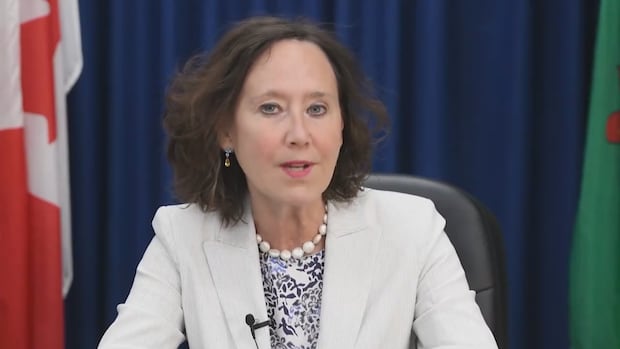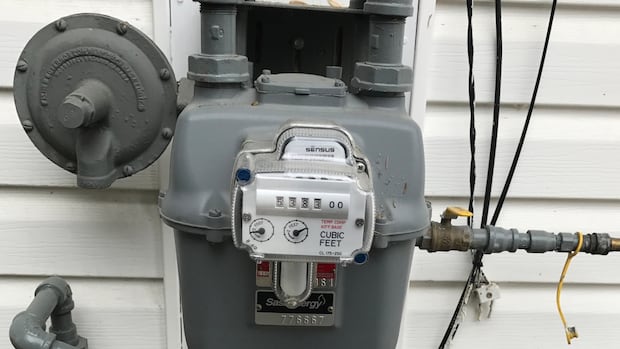
Saskatchewan’s Ministry of Justice is taking the Canadian Revenue Agency (CRA) to court for what it says is an attempt by the federal agency to “garnish” from the province’s bank account.
The provincial government has only offered details in a video posted to social media that features Justice Minister Bronwyn Eyre leaning heavily on political rhetoric and providing few specifics.
“Now [the federal government is] threatening us again with their favourite move when someone disagrees with them,” said Eyre.
“They’re sending the Canada Revenue Agency after the province’s bank account.”
In response, the province is filing an injunction against the CRA, Eyre said.
Saskatchewan’s attorney general Bronwyn Eyre says Ottawa is “sending the Canada Revenue Agency after the province’s bank account” and the government has filed an injunction to stop them. The province refused to remit the carbon tax on home heating after the federal government exempted home heating oil, a move that favoured Atlantic Canada.
The move is an escalation in the dispute between the two levels of government over the federal carbon levy.
Saskatchewan stopped collecting and remitting the tax on natural gas for home heating in response to the federal government’s decision to exempt home heating oil for three years. Home heating oil is primarily used in Atlantic Canada.
Premier Scott Moe announced last year that SaskEnergy, the provincial natural gas utility, would stop collecting the tax starting Jan. 1, 2024.
The province later said SaskPower would do the same for electricity used to heat homes.
According to the province, approximately 370,000 residential SaskEnergy customers use natural gas to heat their homes. That’s 85 per cent of homes in Saskatchewan. Thirteen per cent of households heat their homes using electricity, according to the province.
Eyre is set to provide more details during an availability this afternoon.
The CRA and Environment and Climate Change Canada did not immediately respond to a request for comment.
Saskatchewan’s auditor has warned that the province’s decision to not collect and remit part of the federal carbon tax could cause “significant errors” in the province’s future financial statements.
Earlier this year, Premier Scott Moe said the province was facing a CRA audit to see how much the province owes Ottawa.
“They will ask if they can look at the submissions we’ve made and for us to submit money they estimate may be owed,” he told reporters.
“We don’t believe there’s any dollars that are owed.”
At the time, Prime Minister Justin Trudeau said the CRA is “very, very good” at getting money owed and wished Moe “good luck” in dealing with the agency.
Dustin Duncan, Saskatchewan’s minister responsible for all major Crown corporations, echoed Moe’s statements during an event on Wednesday.
Duncan was dismissing concerns raised by the province’s auditor that the government’s decision to not collect and remit part of the federal carbon tax could cause “significant errors” in the province’s future financial statements.
“There’s a process that goes on now between the province and the CRA, in terms of reconciling those numbers, so at this point we’re comfortable with our belief and understanding that we’ve paid what we owe and will continue to do so,” Duncan said.
He gave no hint that an injunction was being filed by the provincial government.
It’s not clear how much money was not remitted to the federal government as part of the province’s policy shift.
As part of the 2022-2023 fiscal year, SaskEnergy remitted $172 million in carbon tax to the federal government. The carbon tax rate has increased since then.

